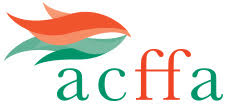To the Editor:
I am writing to express my concern about the misinformation contained in the story “Coalition protests Bay of Fundy aquaculture venture” that appeared on A4 of the Friday, June 17 edition of the Telegraph-Journal.
Fundy Baykeeper’s Matthew Abbott is quoted as saying the salmon farming industry is expanding in Nova Scotia because “disease and environmental problems have limited such opportunities in New Brunswick.”
Mr. Abbott is wrong.
In fact, salmon farm sites are carefully chosen in areas where water currents naturally provide the best conditions for fish well-being and environmental sustainability. Rigorous federal and provincial regulations determine where a farm can be located. Quite simply, there is little space in the waters off the coast of New Brunswick that meets the strict criteria necessary for locating new farms. Only ten farms are operating in Nova Scotia, which leaves ample room for expansion in that province at a time when coastal communities are seeking economic development opportunities. Salmon farming is a perfect fit.
What also cannot go unchallenged are Mr. Abbott’s speculative comments that the new farms planned for Nova Scotia will negatively affect the lobster fishery and spread disease and parasites to wild Atlantic salmon.
New Brunswick’s salmon farmers have shared a working waterfront with the traditional fishery for 30 years and during that time lobster landings have increased exponentially while salmon farming has matured to become a social and economic driver for the region. Farmers meet and often exceed high environmental standards set by federal and provincial regulation. They follow rigorous codes of practise and regulations that now include regular fallowing of farms, government-audited sediment testing of the ocean floor and site-specific environmental assessments.
No credible scientific evidence exists that shows farmed salmon spread disease or parasites to wild salmon.
Pristine seawater is essential to the production of healthy, high-quality salmon, and our locally-owned and managed salmon farming companies are committed to protecting the ocean environment in which they work and live.
We welcome public scrutiny of our industry, but let’s frame that debate in science-based facts, not fiction.
Pamela Parker
Executive Director
Atlantic Canada Fish Farmers Association
